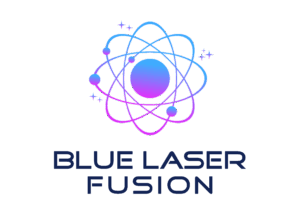Gainesville, GA / Syndication Cloud / October 14, 2025 / Sleep ZM

Understanding Blue Light and Digital Screens
You’ve probably heard warnings about blue light from screens damaging your eyes or ruining your sleep. The truth is more complicated than the marketing claims suggest. Blue light is a natural part of the light spectrum that comes from the sun, and your devices emit it too, though in much smaller amounts than natural daylight.
The research on whether blue light glasses actually help is still evolving and frankly, inconclusive. Some studies suggest that excessive blue light exposure, especially at night, might interfere with your body’s natural sleep signals. Other research has found little evidence that blue light from screens causes lasting eye damage. Sleep ZM notes that while scientists continue studying these effects, many people report subjective improvements in comfort and sleep when using blue light filtering glasses.
What The Science Actually Shows
Here’s where things get interesting. A 2019 study in the Journal of Adolescent Health found that blocking blue light in the evening helped teenagers fall asleep faster. However, a 2021 review in the American Journal of Ophthalmology concluded that blue light glasses showed minimal benefit for reducing eye strain compared to regular breaks from screens.
The inconsistency in research results doesn’t mean blue light glasses are useless. It suggests that individual responses vary, and other factors like screen time duration, viewing distance, and room lighting also play significant roles in eye comfort and sleep quality.
What To Look For In Blue Light Glasses
If you decide to try blue light glasses, quality matters significantly. Many products on the market block very little blue light despite their marketing claims. Look for glasses that specify the percentage of blue light they filter, ideally blocking at least 50% for daytime use or up to 100% for nighttime wear.
You should also consider the lens tint. Clear or slightly yellow lenses work well for daytime computer use without dramatically altering color perception. Amber or orange-tinted lenses block more blue light but change how colors appear, making them better suited for evening use when color accuracy matters less.
The Prescription Glasses Problem
Here’s something most people don’t consider: if you wear prescription glasses, swapping them for non-prescription blue light glasses means sacrificing clear vision for potential blue light protection. That’s obviously not ideal for your eyes or productivity.
The better solution is finding clip-on blue light filters or fit-over options that work with your existing prescription eyewear. This approach lets you maintain clear vision while adding blue light filtering when you want it, without needing multiple pairs of expensive prescription glasses.
When Should You Actually Wear Them
Most people assume blue light glasses are only for nighttime use to improve sleep. While evening use makes sense based on how blue light might affect melatonin production, your eyes encounter screens throughout the entire day. There’s no single “right” time to wear them.
If you spend hours staring at monitors during work, wearing blue light glasses during the day might help reduce eye fatigue. If you scroll through your phone before bed, evening use could potentially support better sleep quality. Listen to your body and experiment with different timing to see what helps.
The Bottom Line
Research on blue light glasses remains ongoing and inconclusive. However, if you’re experiencing frequent headaches, eye strain, or sleep difficulties that might relate to screen time, trying quality blue light glasses could be worth exploring. Just make sure you’re getting glasses that actually block meaningful amounts of blue light and work with your vision needs. At minimum, they serve as a reminder to be more mindful about screen habits.
Sleep ZM
support@sleepzm.com
8940 Cas Trail
Gainesville
GA
30506
United States










